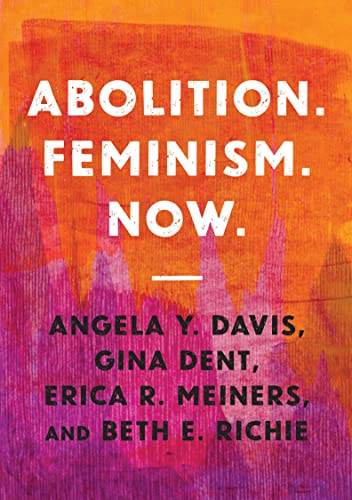Abolition. Feminism. Now. (Abolitionist Papers, 2)
Angela Y. Davis; Gina Dent; Erica R. Meiners; Beth E. Richie
BOOK REVIEW

In the stirring, unflinching pages of Abolition. Feminism. Now., a powerful collection of essays edited by Angela Y. Davis and her formidable colleagues Gina Dent, Erica R. Meiners, and Beth E. Richie, a clarion call for radical change reverberates through the very fabric of our societal norms. This book is more than a mere assemblage of words; it's a bold manifesto that compels you to confront the intersecting forces of oppression and strife that permeate the lives of marginalized communities, urging us to reshape our understanding of justice, feminism, and abolition.
From the very first paragraph, the authors demand your attention, drawing you into a world where the sacred threads of feminism entwine fiercely with the urgent need for abolition. You feel the weight of historical inequities, the suffocating grip of institutional violence, and the clarifying lens of intersectionality that reveals how race, gender, and class converge to dictate the lived experiences of individuals across the globe. As you traverse the pages, a mosaic of voices emerges, each one echoing the urgent need for systemic change.
The resonance of this work is nothing short of profound. In these turbulent times, marked by resounding cries for justice and liberation, the authors probe deeply into how the current carceral state perpetuates cycles of violence and inequality. They dissect the myth of safety as defined by oppressive systems, ultimately laying bare the stark reality: true safety cannot exist as long as prisons imprison our communities and patriarchal structures bind our lives. It's a reminder that, to fight for one's liberation, one must confront the entire edifice of oppression.
Critics and readers alike have praised the book for its unabashedly radical perspective but not without contention. Some argue that its call for abolition may forebode chaos, fearing a society without prisons and punitive measures. But here's the incendiary truth: what the authors illuminate with razor-sharp clarity is that the alternatives to punitive justice systems are grounded in restorative practices, community support, and inclusiveness-an evolution toward a society steeped in empathy and love rather than fear and control. 💥
As you dive deeper, the historical context emerges as a vital backdrop. Davis and her collaborators write against a legacy of resistance, one that has its roots in the abolitionist movements of the past, weaving through the threads of feminism that have always been intertwined with struggles against capitalism and state-sanctioned violence. The voices of those who came before us are not merely echoes in a void; they are vivid reminders of resilience and radical possibility that continue to shape contemporary discourse. Their pain and victories live on, guiding us to reimagine the futures we can collectively construct.
The emotional intensity escalates as you witness the intertwining narratives that portray not just the struggle but also the joy and the unyielding spirit of the movements. You feel the exhilaration coursing through your veins, igniting a fire within you that demands action. Historical figures like Angela Davis, who have shaped the very fabric of activism, haunt these pages, urging you to summon the courage to challenge the status quo.
Reader reactions have been as diverse as the essays themselves. Many find themselves enraged yet enlightened, grappling with the uncomfortable truths laid bare. Others express gratitude-a sense of solidarity birthed in shared understanding of the collective struggle. Yet critics voice concerns that this radical ethos may alienate those who are comfortably nestled within existing structures. However, the sheer audacity of this work is that it refuses to waver in the face of complacency; it calls for a bold reexamination of what justice can mean in a society riddled with inequality.
In a world that often seeks to silence dissenting voices, Abolition. Feminism. Now. resounds like a battle cry, an invitation not merely to contemplate but to act. It urges you, dear reader, to dismantle the walls that segregate us from one another and to embrace a vision that is as radical as it is necessary. Leave no room for doubt-this book is not just a collection of essays; it's an urgent call to action that lays bare the dire need for a reimagined framework for justice, one built on love, community, and radical care.
Don't allow yourself to be a passive observer. Embrace this opportunity to dive into the heart of the abolitionist feminist movement. In doing so, you may just find the inspiration and determination within these pages that fuel the fight for a more equitable future. 🌍✊️
📖 Abolition. Feminism. Now. (Abolitionist Papers, 2)
✍ by Angela Y. Davis; Gina Dent; Erica R. Meiners; Beth E. Richie
🧾 250 pages
2022
#abolition #feminism #now #abolitionist #papers #angela #davis #AngelaYDavis #gina #dent #GinaDent #erica #meiners #EricaRMeiners #beth #richie #BethERichie